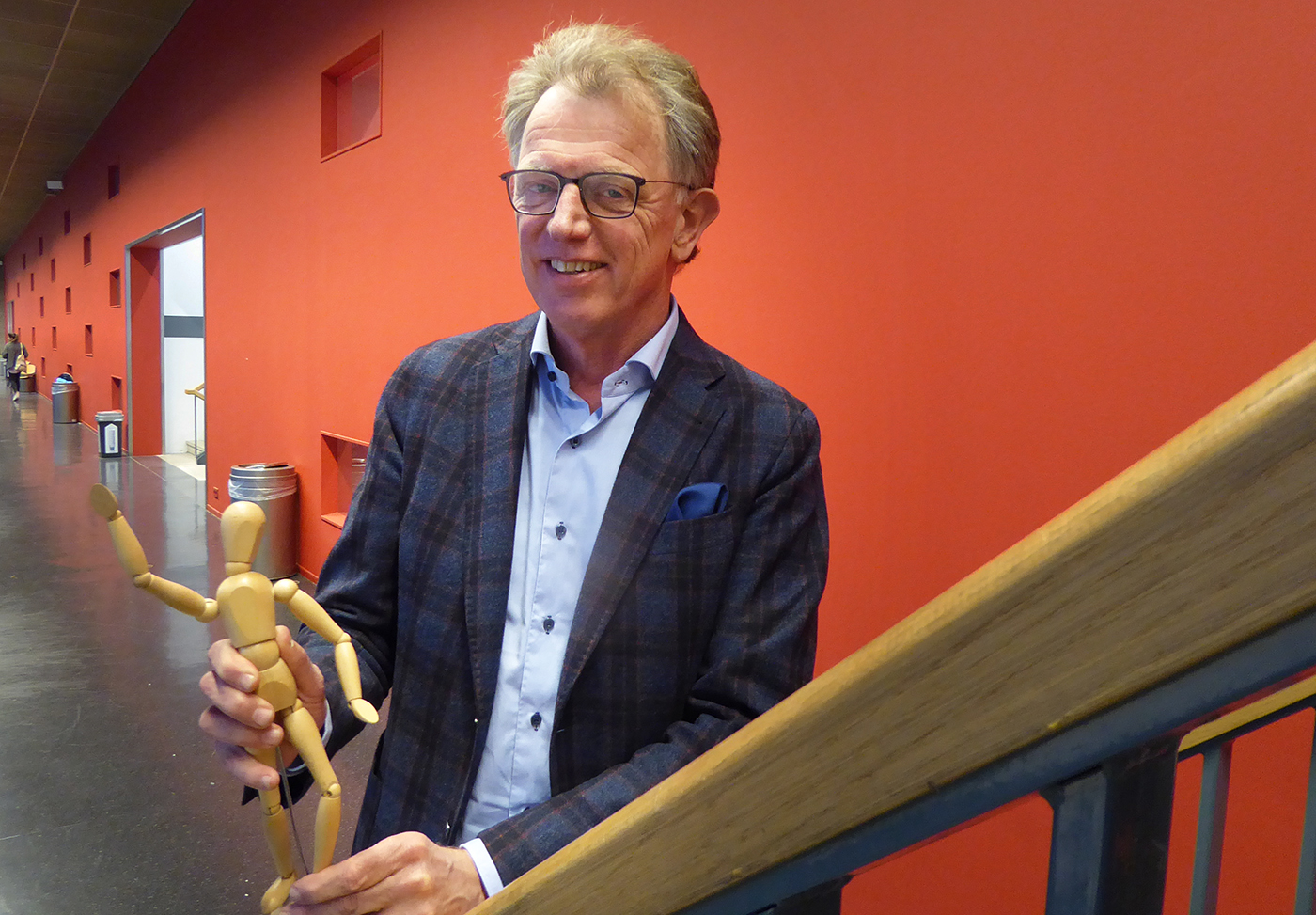Medical Delta started 12 new projects to develop solutions for sustainable healthcare. They were presented yesterday during the Medical Delta Conference 2019.
Professor of Clinical biomechatronics, Jaap Harlaar:'Motor disability is one of society’s main challenges.' (Photo: Jos Wassink)
The projects combine the knowledge and expertise of TU Delft, Leiden University, LUMC and Erasmus MC Rotterdam to address important societal healthcare challenges such as dementia, helping the elderly stay mobile as long as possible, and the regeneration of tissues with stem cells.
Some examples of what the consortium aims to achieve are: research that results in a better understanding of and better treatments for heart rhythm disorders within 10 years; better predictions of who is likely to develop Alzheimer’s disease; more effective brain surgery techniques that cause less damage to the healthy brain; and better technical and social structures that will make it possible for people with brain damage to live independently at home.
In January, Delta spoke to six of the Delft scientists involved. Read their stories here. Or check out Medical Delta’s special issue magazine with descriptions of all the projects.
The TU Delft Phage Library (Fagenbank) was also officially opened during the Medical Delta Conference, the annual gathering on medical technology, on 16 April 2019. The Phage Library is an initiative of microbiologist Dr Stan Brouns (Faculty of Applied Sciences). He is working on developing bacteriophages as an alternative to antibiotics.
Do you have a question or comment about this article?
tomas.vandijk@tudelft.nl


Comments are closed.